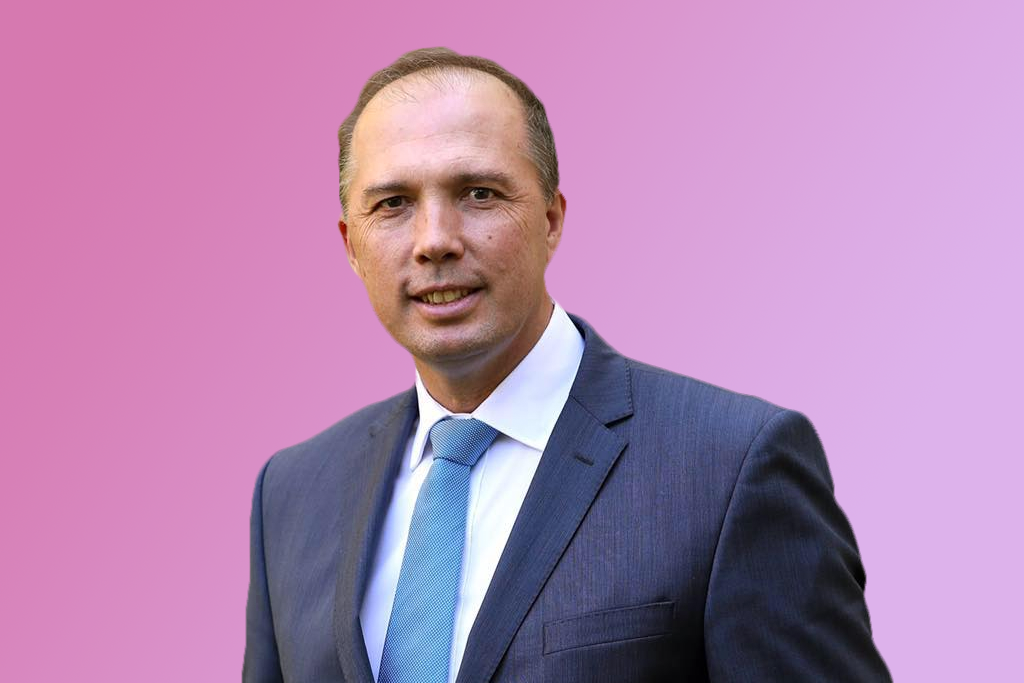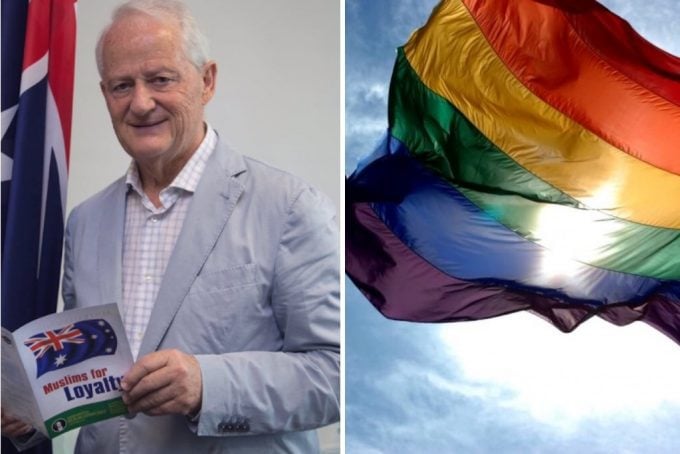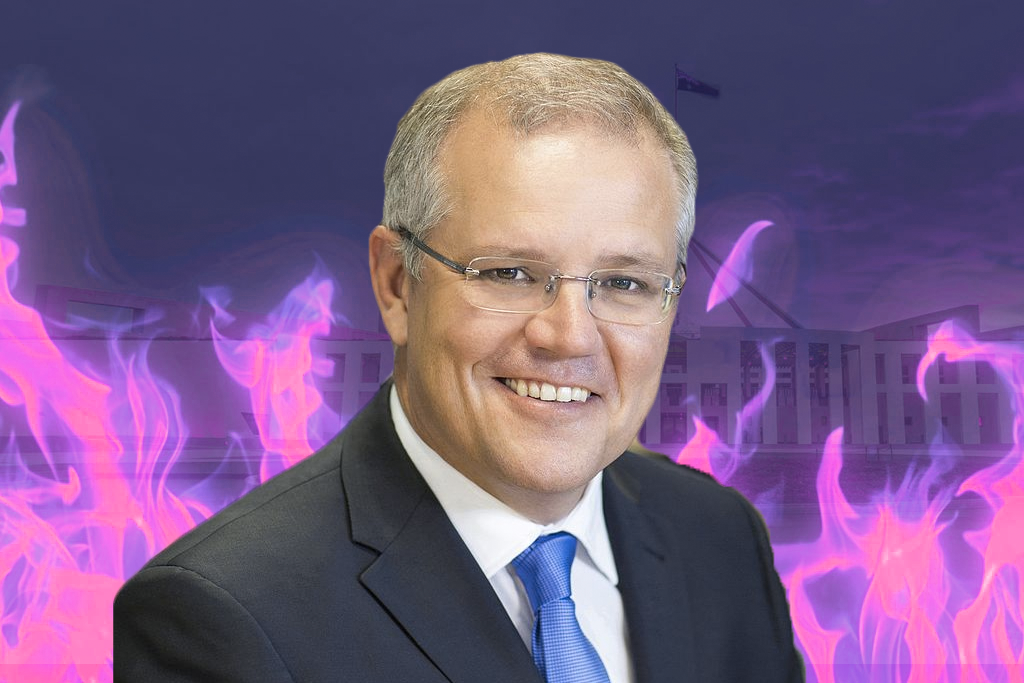A Handy Guide To “Religious Freedom”, Which Is Definitely Not Under Attack In Australia

Graham Perrett is the Labor MP for the Queensland seat of Moreton. Below, he’s shared some helpful hints for speaking with your neighbour about “religious freedom”, now that Scott Morrison has decided it’s top of the government’s agenda.
If you have been reading some newspapers over the past few months you would be forgiven for thinking that Australians are under attack for practising their religion. It is understandable if some people of faith are confused about just what laws apply and why some politicians are saying we need more “protection”. So here are some answers to some of those questions.
Q: Does Australia have any protections for freedom of religion?
A: Section 116 of the Australian Constitution prevents the government from making any laws which prohibit the free exercise of religion. Australia ratified a convention in 1980 entitled the International Covenant on Civil and Political Rights. Article 18 of this convention further protects our religious freedoms.
Q: Are there different rights to religious freedom?
A: The Human Rights Commission in a recent submission to the Religious Freedom Review explains that holding a religious or other belief is an absolute right; it cannot be limited or restricted in any circumstance. In contrast, manifesting a religious or other belief can be limited but only in certain circumstances.
Q: Are people of faith being hounded out of the public square, as Senator James Paterson (Victoria) suggested on 9th July, 2018?
A: There is no evidence that anyone in Australia is not free to practise their own faith. In fact Prime Minister Morrison said only this week in relation to the call for protections for religious freedoms: “Just because
things haven’t been a problem in the past doesn’t mean they won’t be a problem in the future.” Thus, confirming that there are no current issues.
Q: Are Australians protected from discrimination on the grounds of religion?
A: Anti-discrimination laws at a Commonwealth level do not include religion as a ground of discrimination. However, most states and territories have anti-discrimination laws that do include “religion” as a ground of discrimination. The protection is available in many areas including: employment, provision of goods and services, accommodation, education, membership of clubs, and participation in sporting activities.
Only New South Wales and South Australia do not have this protection against discrimination based on religion.
Q: Do state and territory anti-discrimination laws allow people to be discriminated against on religious grounds?
A: State and territory laws have exemptions for some discrimination on the grounds of religion and the provisions in each state are different. In Queensland, for example, in an employment setting, the religious belief (or non-belief) must be an inherent quality required to undertake the work in order to allow the employer to discriminate on the basis of the employee’s faith. For example, a sports teacher in a faith based school may not need to demonstrate a specific religious faith but a religion teacher at the same school probably would need to.
Q: What about a baker? Can she/he refuse to sell cakes to someone because they have different beliefs to their customer?
A: Most likely not. Most state and territory anti-discrimination laws would prevent such discrimination. However, the exemptions in the state and territory legislation allow some religious institutions to discriminate in certain circumstances. In a one case, a Christian youth camp was not permitted to discriminate against a group which promoted mental health for LGBTIQ youth. Interestingly, the High Court refused to hear an appeal in that case.
Q: Which rights are more important — the right to not be discriminated against or the right to freedom of religion?
A: It’s not that simple. There is necessarily tension between the human right of religious worship and the human right to live free from discrimination, but that is not to say that either is more important than the other. It is all a matter of balance and context.
Q: How often do our lawmakers need to consider balancing the right to freedom of religion?
A: The Parliamentary Joint Committee on Human Rights has been scrutinising legislation since 2012. During those six years there have only been twelve Human Rights Committee report entries that have engaged the right to freedom of religion. The committee has considered 13,591 pieces of legislation over these six years.
Q: So why does the Prime Minister say we need protections for religious freedom?
A: In perhaps an attempt to distinguish himself from his predecessors, the new Prime Minister has made faith a central part of his “narrative”. In one of his first interviews Mr Morrison said: “I’ll be taking a proactive approach when it comes to ensuring that people’s religious freedoms are protected… At the end of the day, if you’re not free to believe in your own faith, well, you’re not free.”
Q: So, if the new Prime Minister thinks this issue is so important why won’t he release the report from the Religious Freedom Review that was handed to the former Prime Minister in May?
A: That is a good question; and the answer may reveal more about retail politics and a fear campaign rather than merely what the panel recommended.
Q: So if there is no issue, why is the holder of the highest office in the land making “religious freedom” his number one issue?
A: It is all about the bodies. The Labor Party and the union movement can mobilise enough people to staff the more than 7000 polling booths around the country on Election Day. Finding around 70,000 bodies to staff polling booths is a more difficult task for the Liberal Party. The pews in the Menzies’ Liberal Party’s broad church are emptying as it becomes more and more conservative. Prime Minister Morrison is on a recruitment drive in evangelical churches. He wants the young people from these congregations to wear the Liberal Party’s T-shirts on polling day.
Q: Will the young people in these religious organisations be duped by the Prime Minister’s fear campaign?
A: I hope not.


